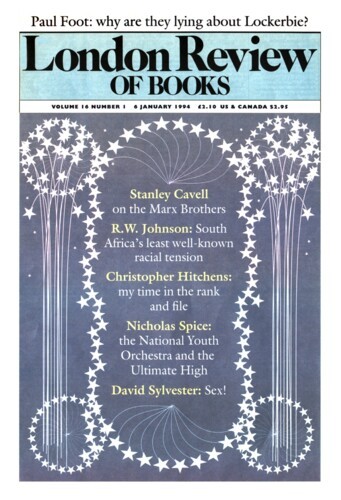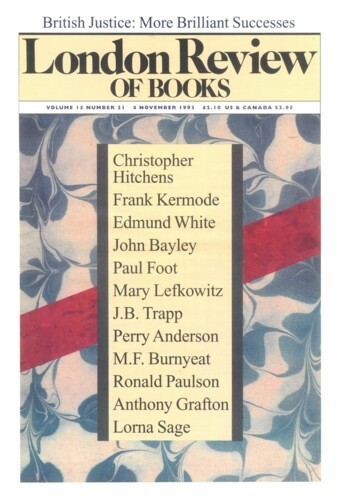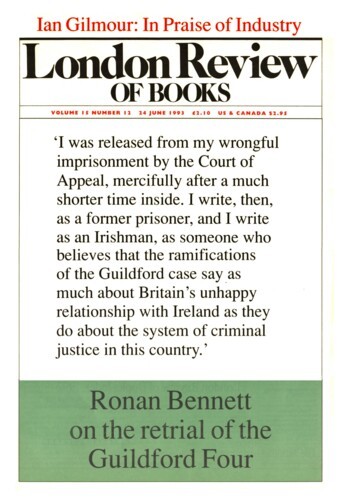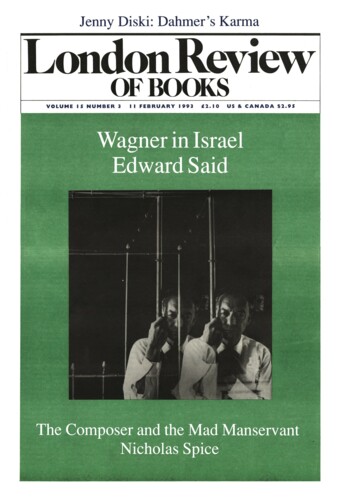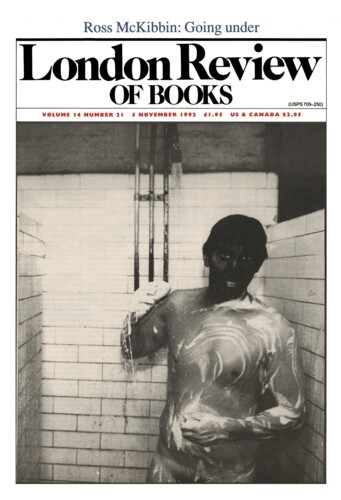The man who refused to sew up his trouser pocket
Nicholas Spice, 6 January 1994
‘Ruth gave the Prime Minister as a Christmas card an old map of the Broadstairs area of Kent.’ The Prime Minister thanked her for it, writing from Chequers ‘in his own hand’. In his 1970-74 diaries Cecil King records a warm relationship between his wife, Dame Ruth Railton, and Edward Heath. ‘I think he is fond of her,’ he wrote on 6 March 1971 after Ted had been round for tea, ‘and finds the friendship of an intelligent and musical woman, with no possible axe to grind, very welcome.’
